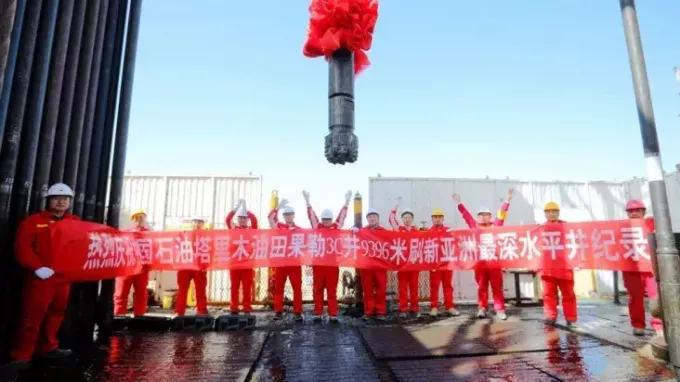A well over 10 km deep has started to be drilled in China. This work will serve to carry out scientific exploration and is located in the Tarim Basin, in the Uighur autonomous region of Xinjiang.
However, what do researchers really expect to find at such a depth of the Earth?
see more
MCTI announces the opening of 814 vacancies for the next portfolio contest
The end of it all: scientists confirm date of when sun will explode and…
See too: China's birth rate is falling, report finds
Framework for China's development

China is a country known for its high potential for technological development, but this huge “hole” represents a milestone in the country's history.
It will help to study deep regions of planet Earth, as few have been able to do. Studies in the area have even used radar materials and seismological signals.
Faced with the size of the work, users of social networks began to call it a “hole to hell”. After all, a well 10 thousand meters deep is something really colossal.
Imagine that it would be the same as stacking more than 1,333
energy standards for homes or 333 blue whales, which are the largest animals on the planet.However, the Chinese government's intention is to go even further and dig a hole with a total depth of 11,100 meters in just 457 days.
This means that it will be the second well in a continental area to reach a depth of more than 10 km in the world. In addition, it will be the fastest work of its kind ever made.
Big challenges ahead
“Referring to the 13 engineering difficulties in drilling, such as high temperature, high pressure, thickness of the gravel layer, thickness of the salt layer and coating damage, coefficient of pressure of water salty and high sulfur content, the Tarim Basin ranks first in the world in terms of these seven world-class difficulties,” explained Sun Jinsheng, professor at the Chinese Academy of Engineering, to the network CCTV.
To dig the well, special drill bits weighing more than 2,000 tons are needed. "Drilling this well will provide us with valuable and difficult-to-obtain information about Earth's evolution," said Professor Hao Fang of the Chinese Academy of Sciences.
